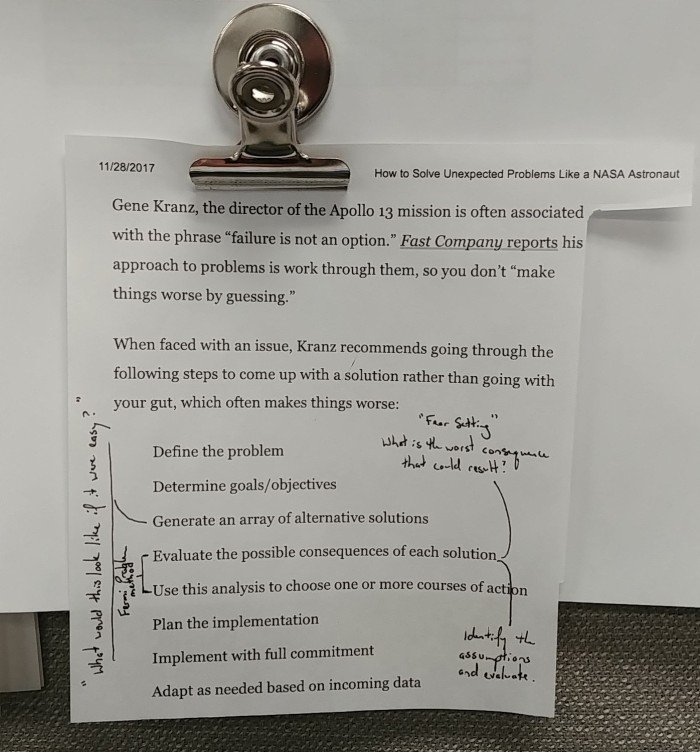In my first post on principles, I had an entry regarding problem solving – specifically, guidance on defining problems. That entry is actually a condensed version of something I have hanging in my cubicle at work:

I printed the post from a Lifehacker article, and have since annotated it with a few extra ideas. On the left, I stole a line from Tim Ferriss’s Tribe of Mentors to supplement the step for generating possible solutions to your problem. The simplicity of the question, “what would this look like if it were easy?” allows me to limit the choice pool by excluding unlikely scenarios while thinking about the positive outcomes.
When it comes to evaluation consequences and narrowing down the options, I have added three additional tools. First, I borrow again from Tim Ferriss where he uses “Fear Setting” to determine the worst case scenarios possible, and then he goes through each outcome and asks himself whether the cost is something that he could live with. By doing so, he reframes his concerns away from merely worrying about negative outcomes to only focus on the things that matter to him.
I also added a note to myself to ensure I’m capturing my assumptions. A lot of the time I start with my conclusions and assume they are transparent in their reasoning. However, if I ask a series of clarifying questions (usually the 5-why technique), I often end up drilling down to hidden assumptions or emotions that motivate the conclusion (rather than pure reason).
The final note I scribbled is in reference to Enrico Fermi who had an uncanny knack making stunningly accurate “guesses” off the top of his head. Fermi used probabilities and statistics to make educated guesses to solve problems, which could then be further refined. It’s a tool for quick and dirty estimates, and it helps to narrow down the choice pool.
My annotations aim at four tools I can use to supplement Kranz’s method: what is the best/easiest solution, what’s the absolute worst case, how easily can we figure this out, and what motivations are driving my decisions. I try to keep those considerations in mind, though I’m not nearly as rational as I pretend to be.
Stay Awesome,
Ryan